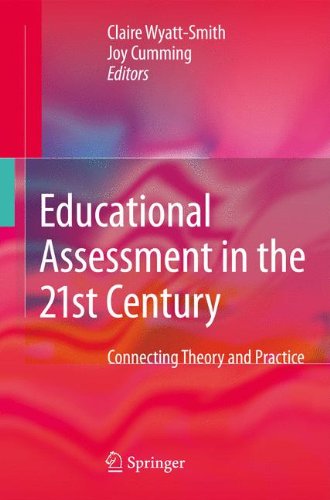

Most ebook files are in PDF format, so you can easily read them using various software such as Foxit Reader or directly on the Google Chrome browser.
Some ebook files are released by publishers in other formats such as .awz, .mobi, .epub, .fb2, etc. You may need to install specific software to read these formats on mobile/PC, such as Calibre.
Please read the tutorial at this link: https://ebookbell.com/faq
We offer FREE conversion to the popular formats you request; however, this may take some time. Therefore, right after payment, please email us, and we will try to provide the service as quickly as possible.
For some exceptional file formats or broken links (if any), please refrain from opening any disputes. Instead, email us first, and we will try to assist within a maximum of 6 hours.
EbookBell Team

4.3
78 reviewsEven in the white heat of the ever-present education debate, assessment is one of the hottest and most contested topics. While teachers develop practical methodologies such as Assessment for Learning, that aim to bring positive benefits to learners, governments and policy-makers strengthen the role of externally mandated assessment for accountability purposes.
With the field of assessment a key focus for research the world over, the traditional issues of the topic, such as validity and reliability, have been joined by a host of other issues all pressing for attention. These include: the value of testing for international benchmarking and public reporting; taking account of cultural and social diversity; new modes of testing and assessment; technological innovation; the issue of what counts as authentic assessment; and inclusion and disability issues in assessment.
In their preface, the editors argue that in a post-modern world changes in the nature of work, globalization, the information revolution and today’s social challenges will all impact on educational priorities, and thus will require new modes of assessment. As our faith in the sciences to solve our problems erodes, we also recognize that the educational assessment cannot be an exact science either; that the involvement of human beings in every aspect of its design, execution and use makes it irrevocably a social project and thus subject to all the vagaries that any kind of human activity implies. This has led to the beginnings of a more humanistic approach to assessment.
As this book makes clear, the challenge for assessment in the 21st century will be to reflect these newly emerging educational priorities. Assessment procedures will be needed that support the next generation in acquiring the skills and values they will need to manage emerging global challenges, skills such as teamwork, problem-solving and the ability to manage one’s own learning. The contributors here offer hope, suggesting that after more than a century of modernist-inspired educational assessment practices inimical to the issues of utility, fairness, flexibility and relevance, we may well be standing at the threshold of significant change.